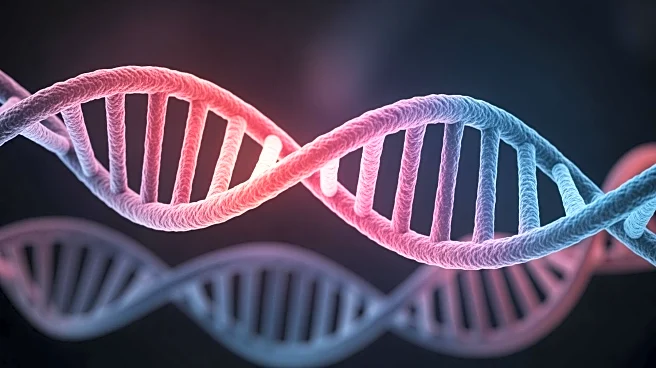What's Happening?
A 35-year-old woman in Brazil was found to have her twin brother's XY chromosomes in her blood, while retaining XX chromosomes in the rest of her body. This condition, known as chimerism, was discovered after the woman experienced a miscarriage and underwent
chromosomal testing. Despite having a male karyotype in her blood, she exhibited normal female traits and reproductive functions. The chimerism likely occurred during fetal development when the woman's blood cells incorporated her twin brother's DNA. Following the miscarriage, she became pregnant again and successfully gave birth to a healthy boy, with doctors prescribing progesterone supplements during the pregnancy as a precaution.
Why It's Important?
This case is significant as it challenges existing medical understanding of chimerism, particularly involving sex chromosomes. Typically, chimerism can lead to physical or reproductive issues, but this woman had no such complications and was able to conceive and deliver a healthy child. The discovery suggests that chimerism may not necessarily impede reproduction, offering new insights into genetic anomalies and their implications for human health. Additionally, the rarity of such cases highlights the potential for underreporting of chromosomal anomalies, as standard medical tests do not typically include karyotyping.















